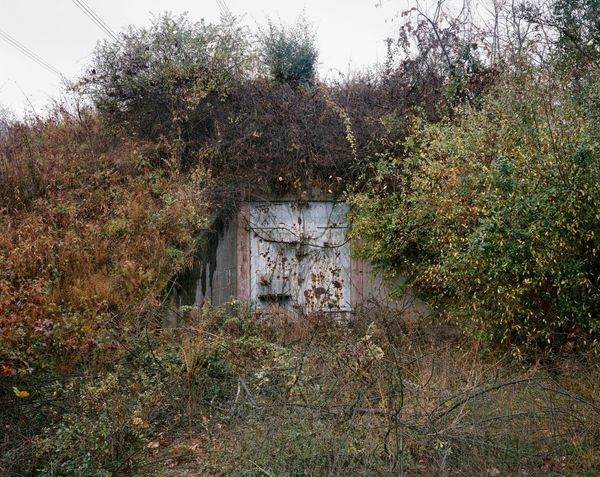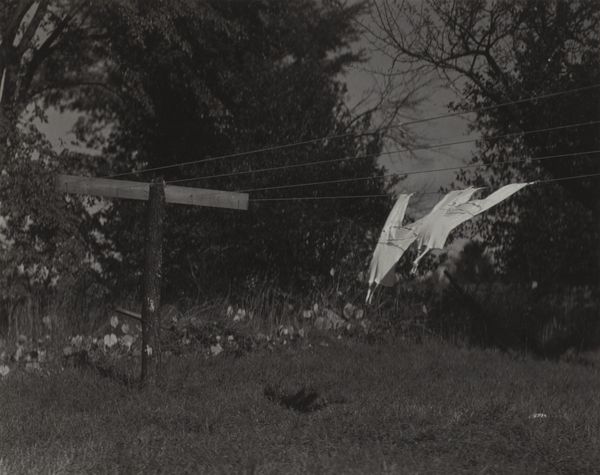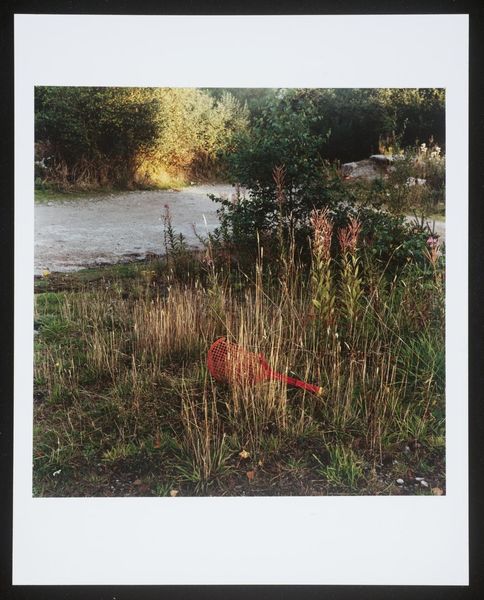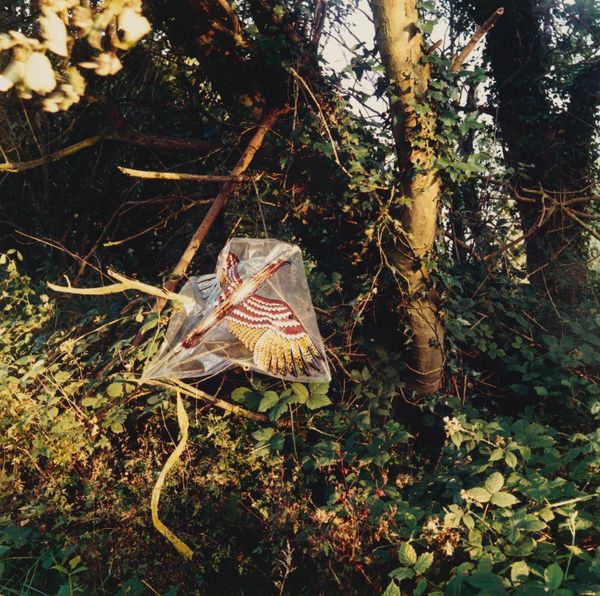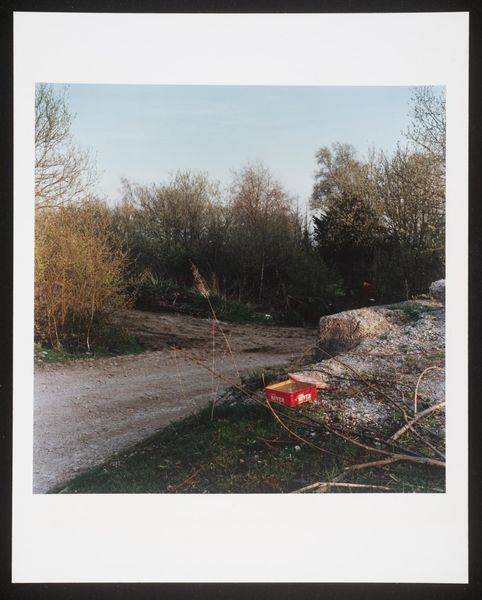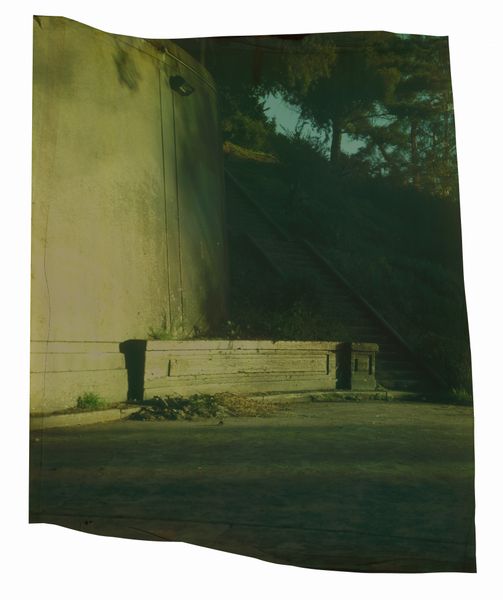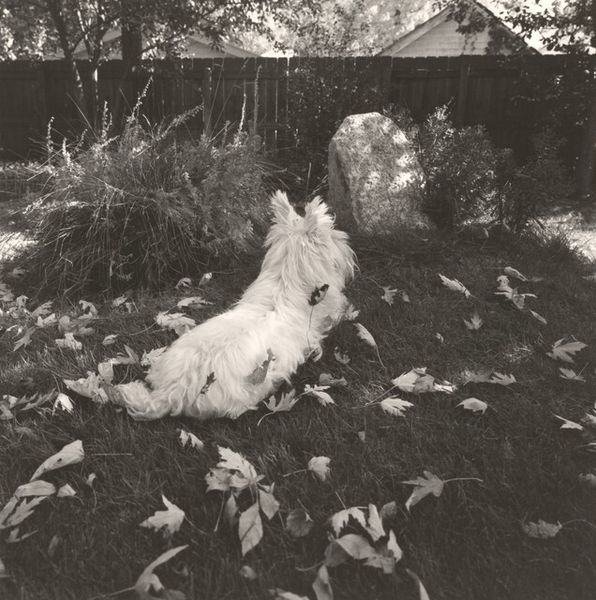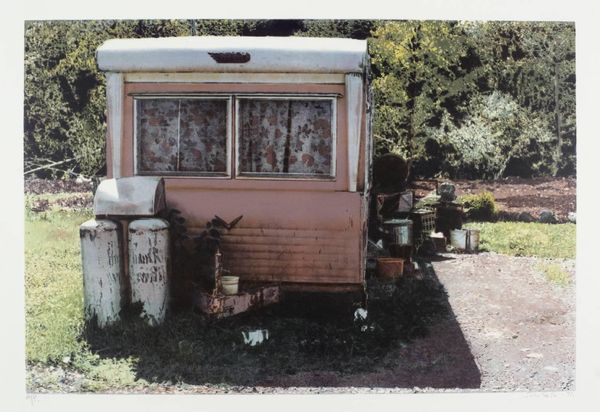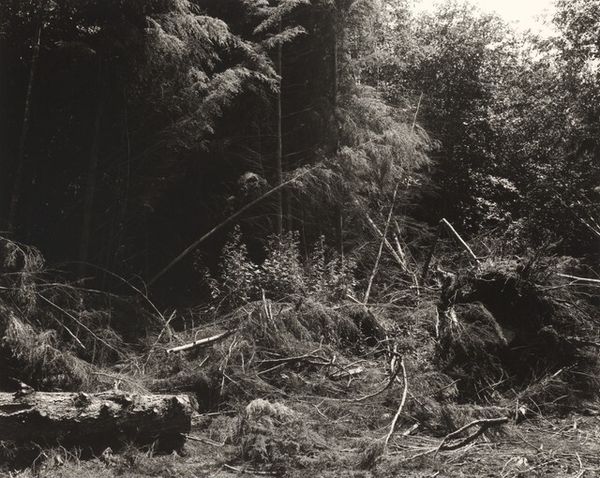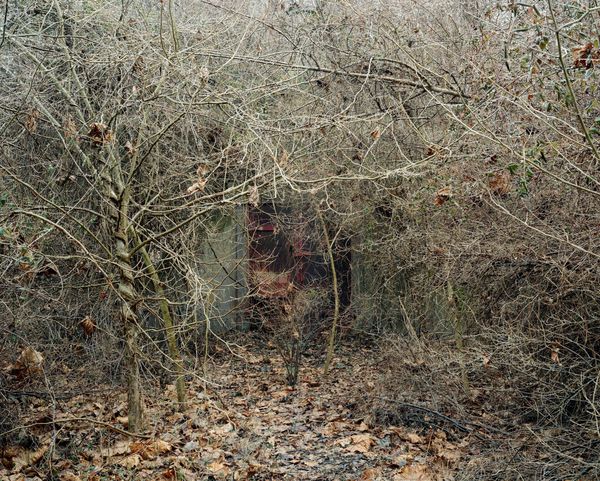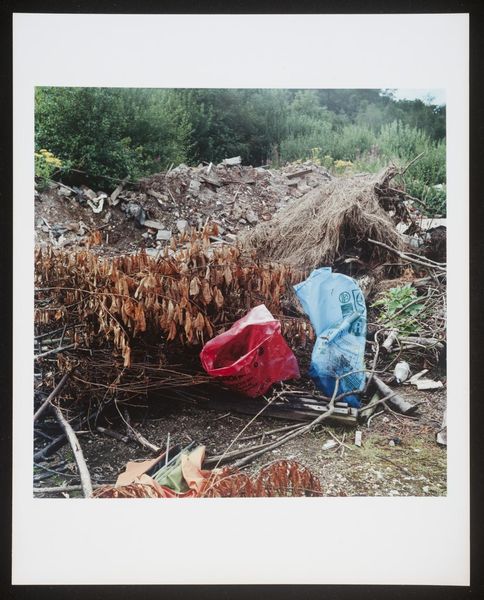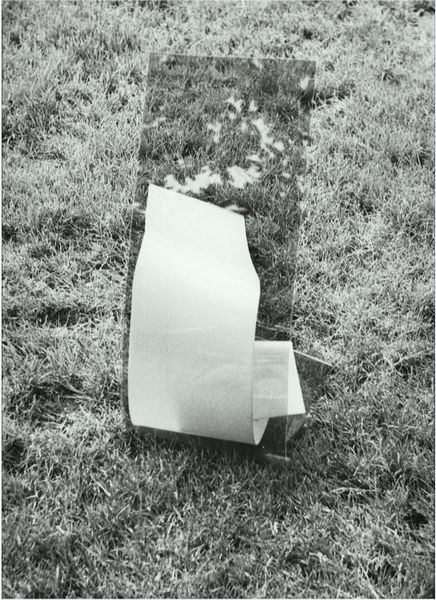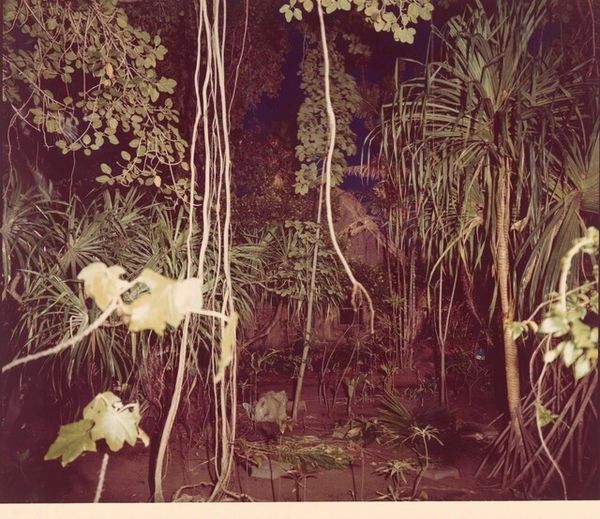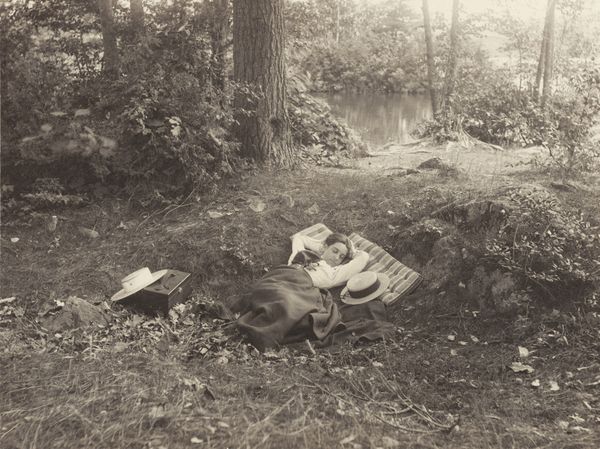
Dimensions: support: 254 x 202 mm
Copyright: © The estate of Keith Arnatt | CC-BY-NC-ND 4.0 DEED, Photo: Tate
Curator: This is Keith Arnatt's "Miss Grace’s Lane," a photograph in the Tate collection. The dimensions of the support are 254 x 202 mm. Editor: It has a kind of ghostly, melancholic feel to it. What’s with the floral-patterned plastic? Curator: Exactly. Plastic and flowers often signify imposed beauty, but here, it's a shroud, obscuring nature. The plastic might symbolize artificiality and humanity's attempt to control nature. Editor: I see how the plastic is doing symbolic work, but it is also a mass-produced item. What does this tell us about labor, production, and waste? Curator: Perhaps the artist wanted us to reflect on how these pretty surfaces mask the darker realities of consumerism. Editor: It has certainly given me much to contemplate. Curator: For me too, especially the tension between what's concealed and revealed.
Comments
tatebritain 10 months ago
⋮
http://www.tate.org.uk/art/artworks/arnatt-miss-graces-lane-t13156
Join the conversation
Join millions of artists and users on Artera today and experience the ultimate creative platform.
tatebritain 10 months ago
⋮
In Miss Grace’s Lane, Keith Arnatt presents natural beauty and environmental degradation side by side. ‘I am very fond of paradox’, the artist notes. Using his camera to achieve a large depth of field, Arnatt gives equal importance to all elements, setting out to create ‘pictures which are not chaotic out of chaos’. One image shows rubbish strewn across the English landscape, bathed in soft, golden hour light. The series references Romanticism, the nineteenth-century art movement inspired by human psychology, personal expression and the natural world. Arnatt parodies the sublime landscapes of British painters like Samuel Palmer (1805–1881), combining the picturesque and the polluted. Gallery label, November 2024
